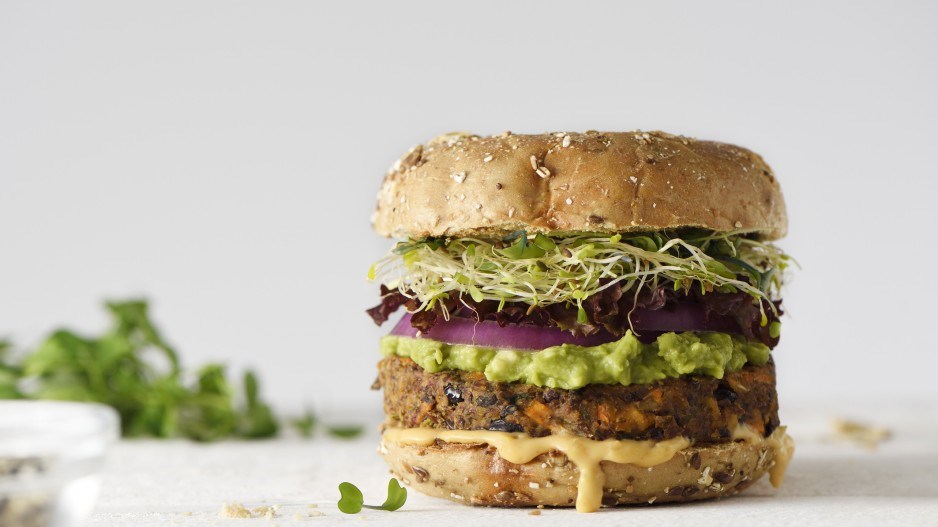Surrey-based vegetarian food maker No Meat Factory has netted US$42 million in venture capital to help it expand production across North America and potentially sell products around the world, the company announced this morning.
Munich, Germany-based equity investor Tengelmann Growth Partners is contributing most of this new cash injection, and this is Tengelmann's initial investment in No Meat Factory. Greenwich, Connecticut-based Emil Capital Partners is an existing investor and a minor investor in the new financing round, the company said.
No Meat Factory's ability to attract capital is impressive given for enterprises in B.C. seeking venture capital.
No Meat Factory makes vegan plant-based food at a 5,000-square-foot production facility at 120-19055 34A Ave. in Surrey.
Co-founders Dieter Thiem and Leon Bell say demand is strong and growing for plant-based meat products despite some industry leaders struggling.
Beyond Meat Inc. (Nasdaq:BYND), for example, was a stock market darling after it went public in May 2019, raising US$240 million. Its shares went public for US$25 each and then rose in value to be above US$234 each by July 2019. The money-losing company has since seen sales slide along with its share price. Beyond Meat's shares ended trading yesterday at US$15.92 – down more than 93 per cent from their peak.
Thiem, No Meat Factory's CEO, said things are different at his company.
“The traction No Meat Factory has experienced in just a few short years is evidence that consumers want greater access to plant-based alternative proteins and brands are looking for ways to deliver quality at an affordable price,” he said.
“With this latest funding round, we are excited to not only expand our operations to meet the needs of our partners, but to take advantage of the support and expertise of our investors as we expand our footprint globally.”
No Meat Factory plans to open a second manufacturing facility somewhere in the U.S. Pacific Northwest in early 2023. Its sales are primarily to what it calls "brand partners," that make nuggets, hamburgars and other foods. The company would not reveal the names of its partners or be specific about whether those partners include fast-food restaurants.
Thiem and Bell say they have 65 years' worth of combined experience in the plant-based food industry. Much of that is in plant-based meat production.
Marcel Bens, managing partner at Emil Capital Partners, said he was satisfied with how No Meat Factory has grown since his initial investment in 2019.
"We’re highly optimistic for the future of No Meat Factory as they plan to evolve beyond servicing brand owners and pursue private-label and foodservice opportunities more broadly,” he said.
B.C. has been a pioneer in the niche of plant-based meat replacements.
B.C.-based . He saw sales surge at his Yves Veggie Cuisine business.
Sales hit $35 million in 2002 and he sold the venture to Hain Celestial Group (Nasdaq:HAIN) in 2003 for a sum that Potvin would not provide, but which BIV has previously .
He then founded Gardein Protein International, which sold its own proprietary type of meatless proteins.
Gardein was then sold in 2014 to Pinnacle Foods Inc. (NYSE:PF) for $175 million, although it was unclear how much of the company Potvin owned at the time.
Potvin in 2018 bought a majority stake in Vancouver’s Pacific Institute of Culinary Arts (PICA) from founder Sue Singer, who moved to Ontario, while longtime PICA chef Julian Bond purchased a minority stake of the company.




